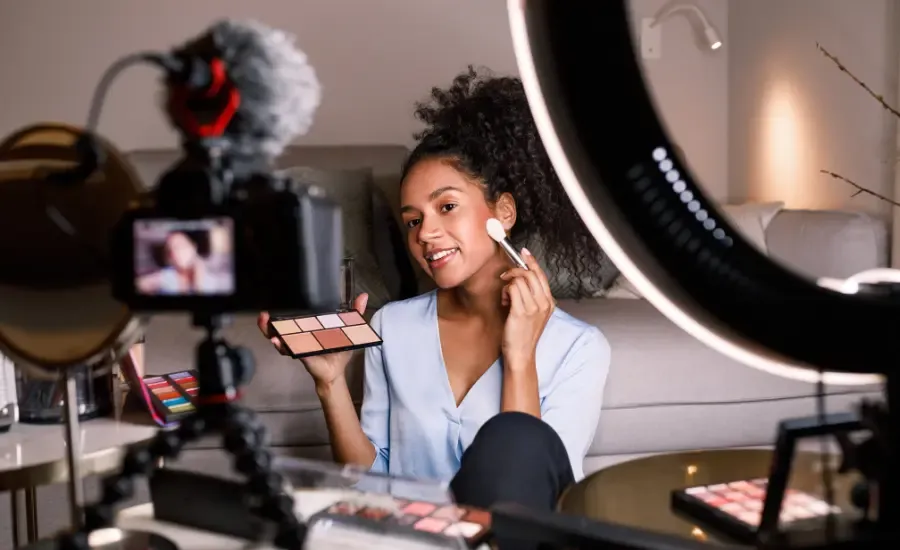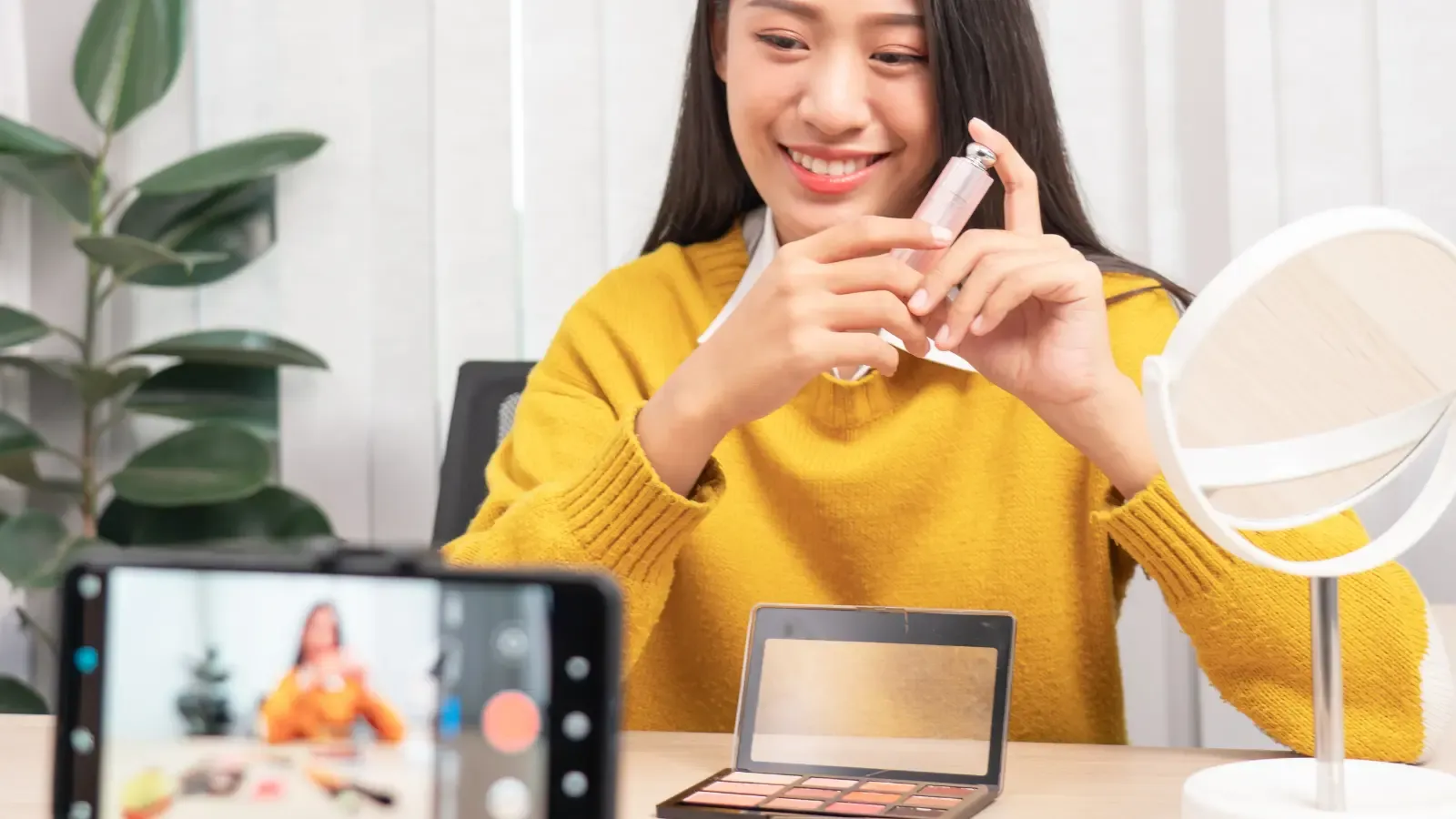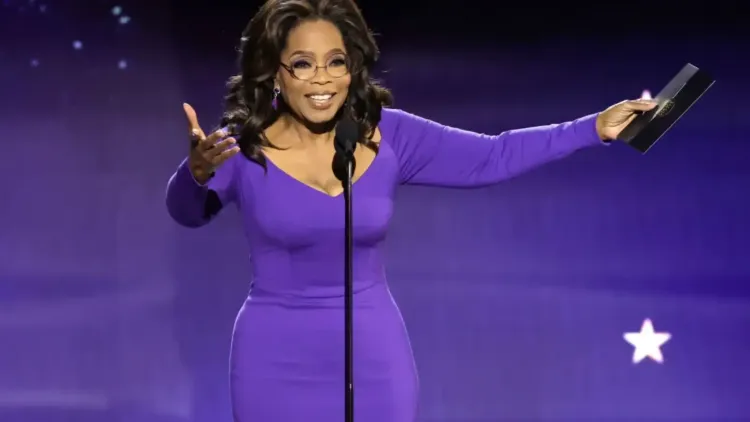When I first started my career in digital marketing, I had some preconceived notions about influencers. Like many people in traditional marketing roles, I initially thought influencer marketing was solely about creating visually appealing content and product placements. Boy, was I wrong. Over the past few years, working as a Digital Marketing Manager at EDL Digital Services, a digital marketing agency, I've had the incredible opportunity to collaborate with dozens of influencers across various niches. What I discovered completely transformed not just my approach to marketing, but my entire perspective on career growth, personal branding, and work-life integration.
The influencer economy isn't just changing how we market products—it's revolutionizing how we think about entrepreneurship, creativity, and building meaningful connections with audiences. These digital entrepreneurs have mastered skills that every working woman can apply to her own career, whether she's climbing the corporate ladder, launching her own business, working as a freelancer, or simply trying to find more balance and authenticity in her professional life.
Here are the five most valuable lessons I've learned from working with influencers, and how they've not only made me a better marketer but also a more confident, strategic, and fulfilled professional.
1. Authenticity Is Your Most Powerful Asset (And It's Completely Free)
Before working with influencers, I thought "professional" meant having a perfectly polished facade at all times. I believed showing vulnerability or admitting mistakes would undermine my credibility. Then I started collaborating with micro-influencers who built their entire following by being refreshingly real about their struggles, failures, and learning curves.

A bright example of this is a lifestyle influencer we worked with at EDL Digital Services for a wellness brand campaign. She openly shared her journey with anxiety, her messy morning routines, and the days when her "healthy lifestyle content" consisted of takeout pizza and Netflix. Rather than damaging her credibility, this authenticity made her audience trust her more. When she recommended products or shared advice, her followers knew it came from genuine experience, not a marketing script.
This revelation hit me like a lightning bolt. I started incorporating more authenticity into my own professional brand. Instead of pretending to have all the answers in client meetings, I began saying, "That's a great question—let me research that and get back to you with a thorough response." Rather than posting only polished success stories on LinkedIn, I started sharing lessons learned from campaigns that didn't go as planned.
The result? Stronger client relationships, more meaningful networking connections, and a significant reduction in the exhausting mental load of maintaining a "perfect" professional persona. Clients appreciated my honesty and felt more comfortable sharing their own challenges and concerns, which ultimately led to better campaign outcomes.
The Career Application: Authenticity in the workplace doesn't mean oversharing or being unprofessional. It means being honest about your knowledge gaps (so you can fill them), owning your mistakes (so you can learn from them), and letting your genuine personality shine through your professional interactions. This builds trust, which is the foundation of every successful career.
2. Content Batching and Systems Are Game-Changers for Productivity
One of the most eye-opening discoveries was learning how successful influencers manage their content creation. Initially, I assumed they were constantly creating and posting in real-time. The reality? The most successful influencers I work with are masters of batching and systematization.
Anna, a beauty influencer we partnered with for a skincare campaign, showed me her content calendar during our strategy session. She had three months of content planned, photographed, and scheduled. She dedicated specific days to photography, others to writing captions, and had templates for different types of posts. What seemed like effortless, spontaneous content was actually the result of strategic planning and efficient systems.
This inspired me to completely overhaul how I approached my marketing responsibilities at EDL Digital Services. I started batching similar tasks together—dedicating Monday mornings to strategy and planning, Tuesday afternoons to content creation, and Friday mornings to analytics review and reporting. I created templates for common client communications, social media posts, and campaign briefs.
The transformation in my productivity was remarkable. Tasks that previously felt overwhelming became manageable. I had more mental space for creative thinking and strategic planning because I wasn't constantly switching between different types of activities. Most importantly, I reclaimed hours in my week that I could dedicate to professional development and, yes, actually leaving the office at a reasonable time (at least most of the days!).
The Wellness Connection: This systematic approach significantly reduced my stress levels. Instead of feeling like I was constantly playing catch-up or forgetting important tasks, I felt in control of my workload. The mental clarity that comes from having organized systems extends beyond work—it created space for better work-life boundaries and more intentional personal time.

3. Building Genuine Relationships Is More Valuable Than Any Marketing Strategy
The influencers who consistently deliver the best results for our campaigns at EDL Digital Services aren't necessarily those with the largest followings—they're the ones who have cultivated genuine relationships with their audiences. They respond to comments, remember followers' names and stories, and create content that feels like advice from a trusted friend rather than a sales pitch.
This relationship-first approach revolutionized how I think about networking and career development. Instead of viewing networking as a transaction (what can this person do for me?), I started approaching it as a relationship-building exercise (how can we mutually support each other's goals?).
I began following up with new connections not just when I needed something, but to share relevant articles, congratulate them on achievements, or simply check in on projects they'd mentioned. I started offering help and resources before asking for anything in return. I made an effort to remember personal details from conversations and reference them in future interactions.
The shift in my professional relationships was remarkable. Colleagues started coming to me with interesting opportunities, clients began referring new business to EDL Digital Services specifically because of their positive experience working with me, and I developed a network of professional contacts who felt more like a supportive community than a transactional database.
The Long-term Impact: These genuine relationships have become one of my most valuable career assets. When I'm looking for new opportunities, facing challenging projects, or seeking advice on career decisions, I have a network of people who genuinely want to see me succeed because I've invested in their success as well.
4. Personal Branding Isn't Vanity—It's Strategic Career Development
Before working in influencer marketing, I thought personal branding was self-indulgent or superficial. Watching influencers strategically build their brands opened my eyes to the power of intentional reputation management and thought leadership.
Successful influencers don't just post random content—they have a clear brand identity, consistent messaging, and strategic goals for their platform. They understand their unique value proposition and communicate it consistently across all touchpoints. This isn't about ego; it's about clarity and strategic positioning.
I realized that every professional has a personal brand, whether they're intentionally managing it or not. The question isn't whether to have a personal brand, but whether to be strategic about it or leave it to chance.
I started applying influencer branding strategies to my own career development. I identified my unique strengths and expertise areas (data-driven creative campaigns, wellness brand marketing, and client relationship management). I sought out speaking opportunities and volunteer positions that aligned with my brand values and expertise areas.
At EDL Digital Services, this strategic personal branding enhanced my professional credibility. Clients began requesting to work specifically with me based on my reputation and expertise. I was invited to industry panels and conferences, which provided additional learning opportunities and expanded my professional network. Most importantly, having a clear personal brand gave me confidence in my professional interactions and career decisions.
The Authenticity Balance: The key insight from influencers is that effective personal branding amplifies your authentic strengths rather than creating a false persona. It's about being more intentional and strategic about showcasing the value you already provide.
5. Diversification and Multiple Revenue Streams Create Stability and Freedom
Perhaps the most valuable lesson I learned from influencers is the importance of diversifying income streams and not putting all your eggs in one basket. The most successful influencers I work with don't rely solely on sponsored posts—they have courses, affiliate partnerships, product lines, consulting services, and various other revenue streams.
This entrepreneurial mindset completely transformed how we approach business growth at EDL Digital Services. I've seen firsthand how watching influencers build diverse income streams inspired us to expand beyond traditional web design and development services.
We began incorporating complementary revenue streams that aligned with our expertise and our clients' evolving needs. We developed educational workshops and masterclasses for small business owners who needed to learn digital marketing basics before they were ready for full-service support. We created done-with-you programs that combined our expertise with clients' internal teams for more budget-conscious businesses.
We also expanded into strategic partnerships with other service providers—copywriters, photographers, and business coaches—creating referral income streams while providing our clients with comprehensive solutions. Additionally, we developed digital products like marketing templates and audit checklists that could serve businesses at different budget levels.
This diversification didn't dilute our core services—if anything, it strengthened them. The insights we gained from teaching workshops informed our client campaigns. The partnerships we built expanded our capabilities and allowed us to serve clients more comprehensively. The different service levels meant we could work with businesses at various stages of growth, creating long-term relationships that evolved with their needs.
The Business Growth Factor: Having multiple revenue streams provides both financial security and business resilience. It reduces the risk that comes with relying on one type of client or service and creates opportunities to serve your market more comprehensively. For any working woman building her own business or leading business development, diversification creates stability while allowing you to test new markets and services with calculated risk.
The Ripple Effects: How These Lessons Transformed My Career and Life

Implementing these five lessons has created positive changes that extend far beyond our marketing results at EDL Digital Services. My increased authenticity has deepened relationships with both clients and team members. The systems and productivity strategies I learned from influencers allowed us to scale our operations while maintaining quality and gave our team better work-life boundaries.
Building genuine relationships has made our agency work more fulfilling—we're not just delivering services, we're partnering with businesses we genuinely care about and want to see succeed. Having a clear personal brand has enhanced our agency's reputation and credibility in the market. Diversifying our service offerings has created business resilience and opened opportunities to serve our community in new ways.
These changes have made me a more effective leader. I bring fresh insights from our diverse client experiences, I'm more confident in business development conversations, and we have the systems and relationships needed to deliver exceptional results consistently across all our service lines.
Implementing These Lessons: Practical Next Steps for Working Women
If you're inspired to apply these lessons to your own career, start small and choose one area to focus on initially:
For Authenticity
Identify one area where you've been hiding behind perfectionism and experiment with being more genuine. This might mean admitting when you don't know something, sharing a professional challenge you're working through, or letting more of your personality show in professional interactions.
For Systems and Productivity
Don’t be busy, be productive. Choose your most overwhelming recurring task and create a system or template to streamline it. This could be batch-processing emails, creating templates for common communications, or designating specific times for different types of work.
For Relationship Building
Commit to following up with new professional connections within 48 hours, not with a request, but with something valuable, such as a relevant article or resource.
For Personal Branding
Write down your unique strengths and expertise areas, then look for one opportunity to share these insights, whether through a LinkedIn post, volunteering to present at a team meeting, or participating in an industry discussion.
For Diversification
Look at your current skills and expertise, then identify complementary services or products you could offer to better serve your existing market or reach new audiences. This could be educational content, strategic partnerships, or different service levels that meet various budget needs.
The Future of Work Is Here
The lessons I've learned from influencers aren't just marketing insights—they're glimpses into the future of work. As traditional career paths become less predictable and more professionals seek flexibility and autonomy, the entrepreneurial skills that influencers have mastered become increasingly valuable for everyone.
The most successful professionals of the next decade will be those who can build authentic relationships, create systematic approaches to productivity, develop strategic personal brands, and diversify their skills and income streams. These are no longer just "nice to have" skills—they're becoming essential for career resilience and fulfillment.
Working with influencers has taught me that success in the digital age isn't about having the perfect strategy or the most followers—it's about being authentic, strategic, and genuinely valuable to the people you serve. Whether you're serving clients, colleagues, or an online audience, these principles create the foundation for sustainable, fulfilling career growth.
As I continue to grow in my role and expand my professional horizons, I'm grateful for the unexpected mentors I've found in the influencer community. They've shown me that the most powerful marketing strategy is simply being genuinely helpful, consistently valuable, and authentically yourself.
And for any working woman reading this: you already have unique insights, valuable experiences, and distinctive strengths. The question isn't whether you have something valuable to offer—it's whether you'll be strategic about sharing it with the world.
Tonia is the Editor of The Working Gal and a Digital Marketing Manager at EDL Digital Services, a full-service web design, development, and digital marketing agency. She specializes in influencer marketing campaigns and helping brands build authentic connections with their audiences. You can connect with her at tonia@edl.gr for more insights about digital marketing and career development.
About EDL Digital Services
EDL Digital Services is a Web Design & Development, and full-service Digital Marketing Agency dedicated to helping businesses build strong online presences and connect authentically with their audiences. From influencer marketing campaigns to comprehensive website overhauls and SEO Marketing along with Paid Advertising, EDL Digital Services offers strategic, results-driven solutions for businesses seeking to expand their digital presence. Learn more.
 THE WORKING GAL
THE WORKING GAL





